Keynote Speaker
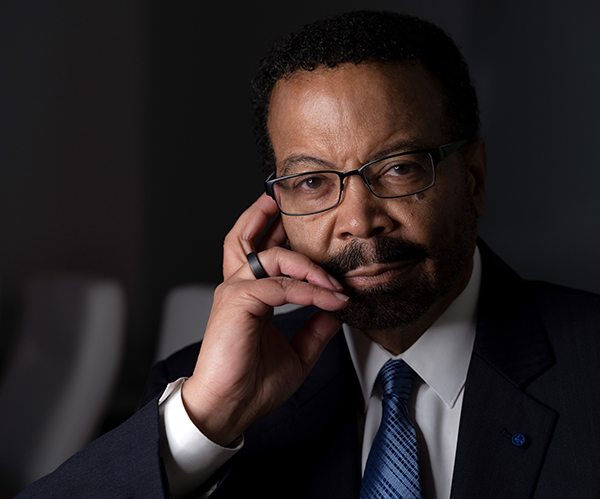
Roderic Ivan Pettigrew, PhD, MD
Keynote Speaker
Roderic Ivan Pettigrew, Ph.D., MD, is the Robert A. Welch Professor of Medicine, CEO of Engineering Health (EnHealth), and inaugural dean of the School of Engineering Medicine at Texas A&M University which offers the ENMED program in partnership with Houston Methodist where he is Adjunct Professor of Nanomedicne and Radiology and Member of the Center for RNA Therapeutics. He was the founding Director of the US National Institute of Biomedical Imaging and Bioengineering (NIBIB) of the NIH [2002-2017], building it into the signature NIH institute for emerging medical technologies.
His newest undertaking is EnHealth, the world’s first initiative to holistically integrate engineering into all of the colleges of a university that is a part of the healthcare enterprise. ENMED is the first constituent initiative, creating a new school that integrates engineering into medical training to develop a new kind of innovation-minded physician, or Physicianeer, who invents solutions to healthcare problems. Of note, an invention is required of each ENMED graduate who will earn both an MD and a Master of Engineering Innovation in Medicine degrees in only 4years. In May 2023, ENMED will graduate its inaugural class as the World’s First Class of Physicianeers.
Dr. Pettigrew’s expertise is in health technologies emerging from the convergence of the life sciences, the physical sciences, and engineering. Earning a Morehouse BS in Physics as a Merrill Scholar, he is an MIT graduate in Applied Radiation Physics (PhD ’77) who finished his medical training in Nuclear Medicine at UCSD (’83), and is known internationally for his pioneering work involving four-dimensional imaging of the cardiovascular system using magnetic resonance (MRI). His current work is on predictive modeling of coronary atheroma and nanomedical strategies for disease inhibition.
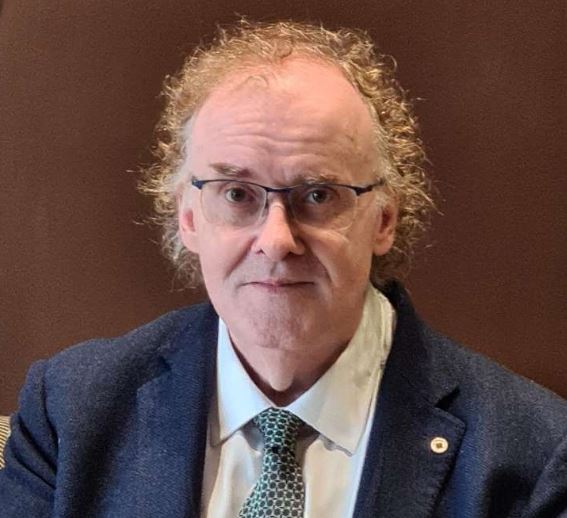
Prof. Paul M Cunningham
Keynote Speaker
Prof. Paul M Cunningham has over two decades of experience collaborating with key stakeholder groups to co-design and implement ethical, impactful, Sustainable Development policy, research and innovation, and implementation activities, including international conferences hosted by African and European governments. Paul is affiliated with IUM (Namibia) and Wrexham Glyndwr University (Wales).
Paul is the Executive Director of the not-for-profit policy and research IST-Africa Institute (www.IST-Africa.org), a strategic collaboration with 18 African ministries and national councils responsible for Innovation, Science and Technology policy, research, implementation, and adoption. Supported by the European Commission and African Union Commission, IST-Africa is a member of the United Nations Sustainable Development Solutions Network (UN SDSN) and recognized by the International Telecommunications Union (ITU) as a WSIS 2018 Prizes Champion (International and Regional Cooperation).
As President & CEO of IIMC, Paul leads teams providing technological, strategic, and policy expertise to national and international government organizations and research programs, particularly in Europe and Africa. Paul’s international, interdisciplinary research track record was recognized by Enterprise Ireland (Irish Champion of EU Research – 2015, 2017).
Paul is a Past Director of IEEE Division VI and Past President and VP of Conferences at the IEEE Society on Social Implications of Technology. He previously served as Chair of the IEEE Humanitarian Activities Committee. Paul is a Distinguished Lecturer with the IEEE Society on Social Implications of Technology. Currently, he serves on the IEEE in 2050 Committee, IEEE Conferences Committee, IEEE TAB Finance Committee, and IEEE TAB Diversity, Equity and Inclusion Committee.
Plenary Speakers

Yasemin Akay, PhD
Plenary Speaker
Yasemin M. Akay is an Instructional Associate Professor at the Department of Biomedical Engineering, Cullen College of Engineering, University of Houston. She received her B.S. in Pharmaceutical Sciences from the Hacettepe University, Ankara, Turkey and her M.S. and Ph.D. in Biomedical Engineering from Rutgers University, Piscataway, NJ, USA.
She completed her Postdoctoral Research Fellowships (NIH) in the Departments of Pharmacology & Toxicology, the Department of Physiology Dartmouth Medical School, the Department of Biology, Dartmouth College, and in the Department of Physiology & Biophysics, Boston University, School of Medicine, Advanced Research Center.
Previously, she was a Research Assistant Professor in the School of Biological & Health Systems Engineering, Fulton School of Engineering, Arizona State University, and an Instructional and Research Assistant Professor, the Department of Biomedical Engineering, Cullen College of Engineering, University of Houston.
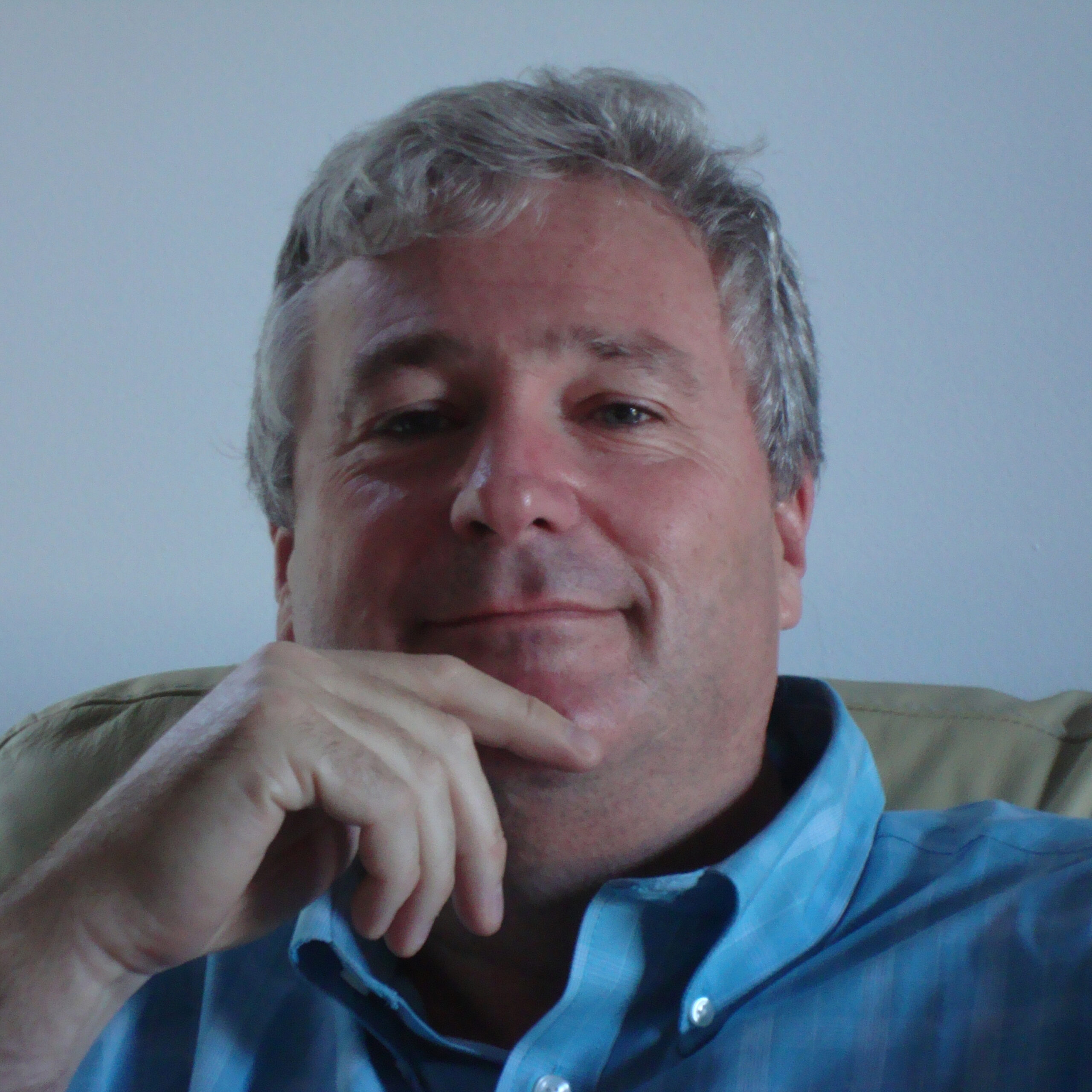
Colin J.H. Brenan, PhD
Plenary Speaker
Colin J.H. Brenan is a serial life sciences entrepreneur and senior executive with over 30 years of experience building high-growth, early-stage life science companies based on in-licensed university research. Dr. Brenan is the CEO of Kibur Medical Inc. (www.kiburmed.com), an early-stage company commercializing a novel precision medicine cancer diagnostic, and Managing Director of CB Bioventures LLC, an advisory for early-stage life science companies. Previously, he was the Founder/CEO and Director of the single-cell instrumentation company 1CellBio Inc. (www.1cell-bio.com); formerly, Founder/Chief Commercial Officer and Director of the antibody-drug developer HiFiBiO Ltd (www.hifibio.com); and, a Managing Partner of the seed stage investment fund 7Pines Holding BV. Before 7Pines, he was Managing Director of the Monsanto-Atlas Seed Fund Alliance at Atlas Venture (Cambridge, USA), where he identified and invested in seed and early-stage life science companies. Before Atlas, Dr. Brenan was Director of Strategic Relationships for the Center for Integration of Medicine and Innovative Technology (CIMIT) — a Mass General-Brigham innovation center (Boston, MA).
Before joining CIMIT, Dr. Brenan was the Founder, Chief Technology Officer, SVP, Business Development, and a Director of BioTrove Inc. (Woburn, USA), a life science nanofluidic tools company spun out from the Massachusetts Institute of Technology (MIT) and acquired by Life Technologies Inc. (LIFE: NASDAQ); and a Founder of Biocius Inc., a drug discovery instrument and service provider spun-out from BioTrove and acquired by Agilent Inc. (A: NYSE).
Dr. Brenan is the inventor of 52 patents and numerous patent applications and published +50 peer-reviewed journal articles, book chapters, and reports in bio-microsystems, confocal microscopy, spectroscopic imaging, drug discovery, and microsurgical robotics. He has over a decade of experience in consulting for the US National Institutes of Health and is a reviewer for IEEE, IEE, and AIP journals.
Dr. Brenan is an IEEE Senior Member, is the Healthcare Lead for the IEEE Entrepreneurship Committee, and was formerly IEEE-EMBS VP of Technical Activities and Editor-in-Chief of IEEE PULSE Magazine. He received his B.Sc. (Honors Physics), M. Eng. (Electrical), and Ph.D. (Biomedical Engineering) from McGill University (Montreal, Canada) and completed post-doctoral training at MIT (Cambridge, USA).
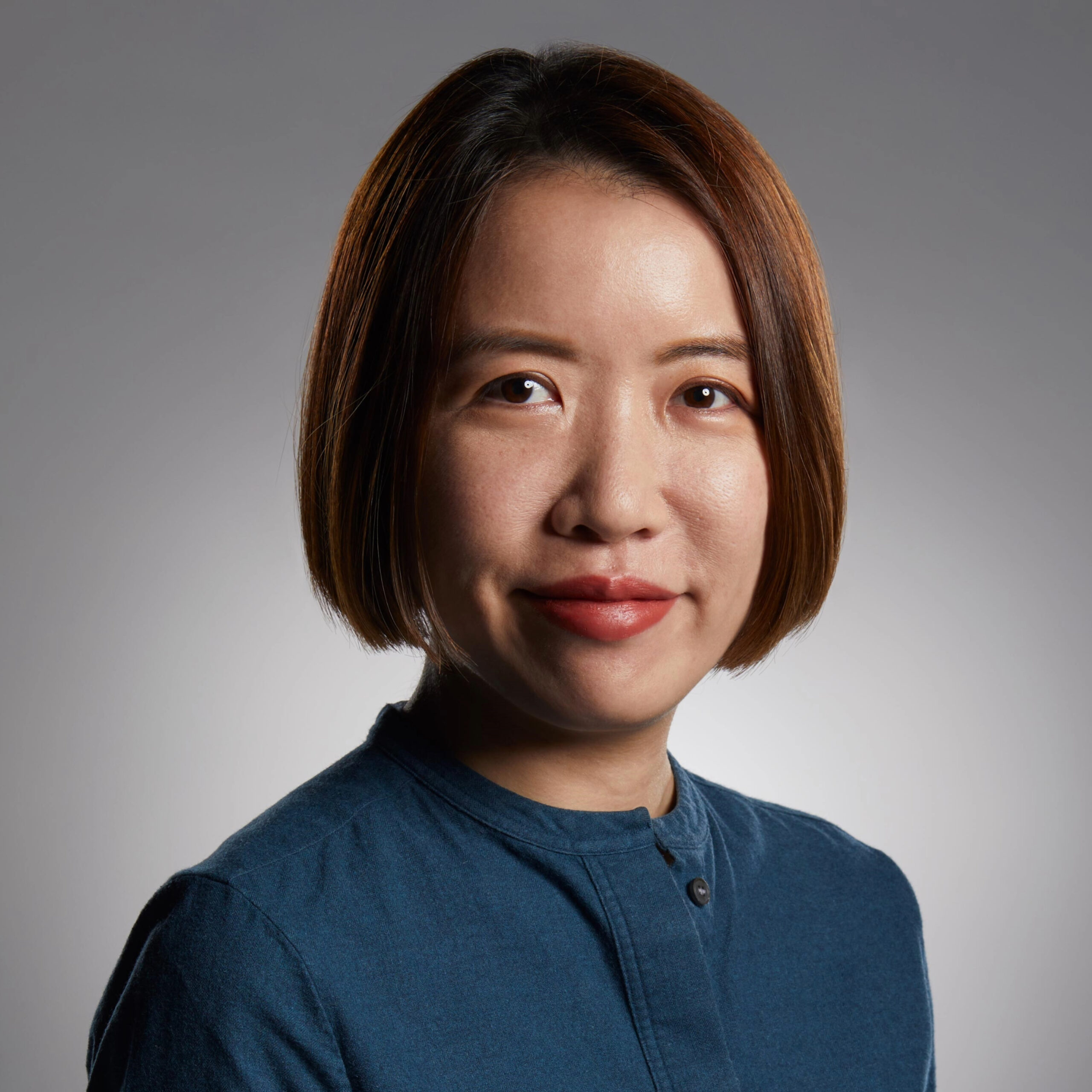
Rosa H. M. Chan, PhD
Plenary Speaker
Dr. Rosa H. M. Chan is currently an Associate Professor and Associate Head (Research and Graduate Programmes) in the Department of Electrical Engineering at City University of Hong Kong. Her research interests include computational neuroscience, neural prosthesis, and human-computer interaction. She received a B. Eng. (1st Hon.) degree in Automation and Computer-Aided Engineering from The Chinese University of Hong Kong in 2003. She was later awarded the Croucher Scholarship and Sir Edward Youde Memorial Fellowship for Overseas Studies in 2004. She received her Ph.D. degree in Biomedical Engineering in 2011 from the University of Southern California, where she also earned her M. S. degrees in Biomedical Engineering, Electrical Engineering, and Aerospace Engineering. She was the co-recipient of the Outstanding Paper Award of IEEE Transactions on Neural Systems and Rehabilitation Engineering in 2013 for their research breakthroughs in mathematical modeling for cognitive prosthesis. She was also the co-recipient of the Gold Medal in Inventions Geneva Evaluation Days (IGED), a virtual edition of the International Exhibition of Inventions of Geneva, in 2021 for a youth sports education and management SaaS platform based on AIoT. Dr. Chan is VP-Elect (Finance) of the IEEE Engineering in Medicine and Biology Society (EMBS). She was the Chair of the Hong Kong-Macau Joint Chapter of IEEE EMBS in 2014 and was elected to the IEEE EMBS Administrative Committee (AdCom) as Asia Pacific Representative (2018-2022). She is an editorial board member of the Journal of Neural Engineering and an area editor (neural signal processing and imaging) of Encyclopedia Brain (IEEE-Wiley).
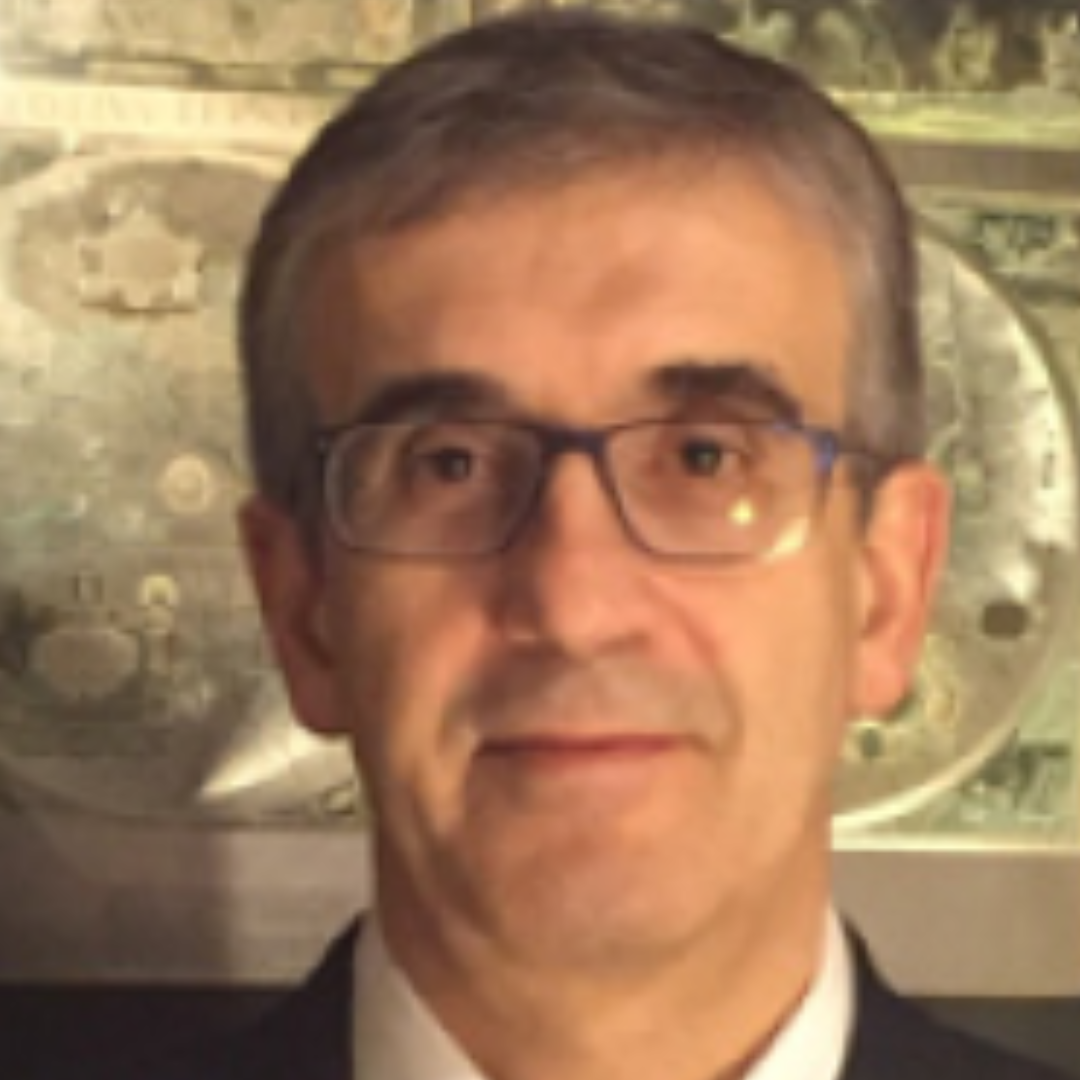
Dimitrios I. Fotiadis, PhD
Plenary Speaker
Prof. Dimitrios I. Fotiadis received a Diploma in chemical engineering from the National Technical University of Athens, Athens, Greece, and a Ph.D. in chemical engineering and materials science from the University of Minnesota, Minneapolis. He is currently a Professor of Biomedical Engineering in the Department of Materials Science and Engineering, University of Ioannina, Ioannina, Greece, where he is also the Director of the Unit of Medical Technology and Intelligent Information Systems and is an Affiliated Member of the Foundation for Research and Technology Hellas, Biomedical Research Institute. He was a Visiting Researcher at the RWTH, Aachen, Germany, and the Massachusetts Institute of Technology, Boston. He has coordinated and participated in more than 250 R&D funded projects (in FP6, FP7, H2020, and national Projects), being the coordinator (e.g., INSILC, TAXINOMISIS, HOLOBALANCE, CARDIOCARE, DECODE, etc.) and Technical coordinator (e.g., SMARTOOL, KARDIATOOL, TO_AITION, etc.). He is the author or co-author of more than 350 papers in scientific journals, 500 papers in peer-reviewed conference proceedings, and more than 50 book chapters. He is also the author/editor of 30 books. His work has received more than 23,000 citations (h-index=71). He is an IEEE EMBS Fellow, EAMBES Fellow, a Fellow of IAMBE, a Fellow of AIAA, a member of the IEEE Technical Committee of Biomedical Health Informatics, Editor in Chief of the IEEE Journal of Biomedical and Health Informatics, a Member of the Editorial Board in IEEE Reviews in Biomedical Engineering, Associate Editor for IEEE Open Journal in Engineering in Biology and Medicine and Computers in Biology and Medicine. His research interests include multiscale human tissues and organs modeling, intelligent wearable/implantable devices for automated diagnosis, processing of big medical data, machine learning, sensor informatics, image informatics, and bioinformatics. He received many scientific awards, including one from the Academy of Athens. He is the co-founder of PD Neurotechnology Ltd, UK.
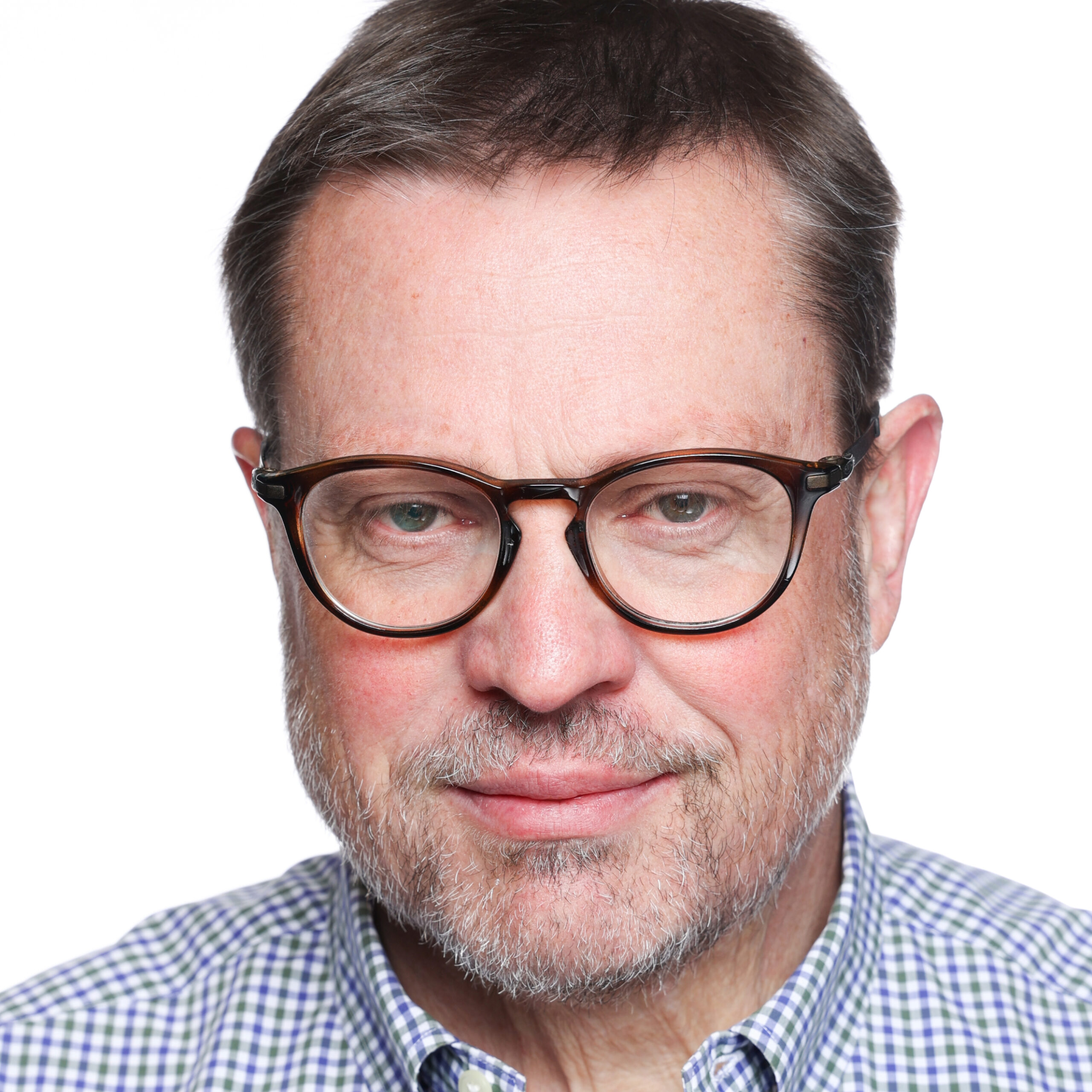
Michael Friebe, PhD
Plenary Speaker
Michael Friebe is a Professor of Biomedical Engineering Innovation at the AGH University of Science and Technology, Kraków, Poland. He is an inventor of over 80 patents and has authored over 200 papers. He is a Board Member of four medical technology start-up companies and an investment partner of a MedTech fund. From 2016 to 2018, he was an IEEE EMBS Distinguished Lecturer on Innovation Generation and MedTech Entrepreneurship.
He received his B.Sc. degree in electrical engineering, his M.Sc. degree in technology management from Golden Gate University, San Francisco, and his Ph.D. degree in Medical Physics in Germany. After his B.Sc. degree, he spent five years in San Francisco as a Research and Design Engineer with an MRI and ultrasound device manufacturer. He has significant expertise in diagnostic imaging and image-guided therapies as a Founder/Innovator/CEO/Investor and a Scientist.
He is also a Research Fellow with the Technical University of Munich, Munich; an Adjunct Professor with the Queensland University of Technology, Brisbane; and a professor of image-guided therapies with Otto von Guericke University, Magdeburg, Germany.
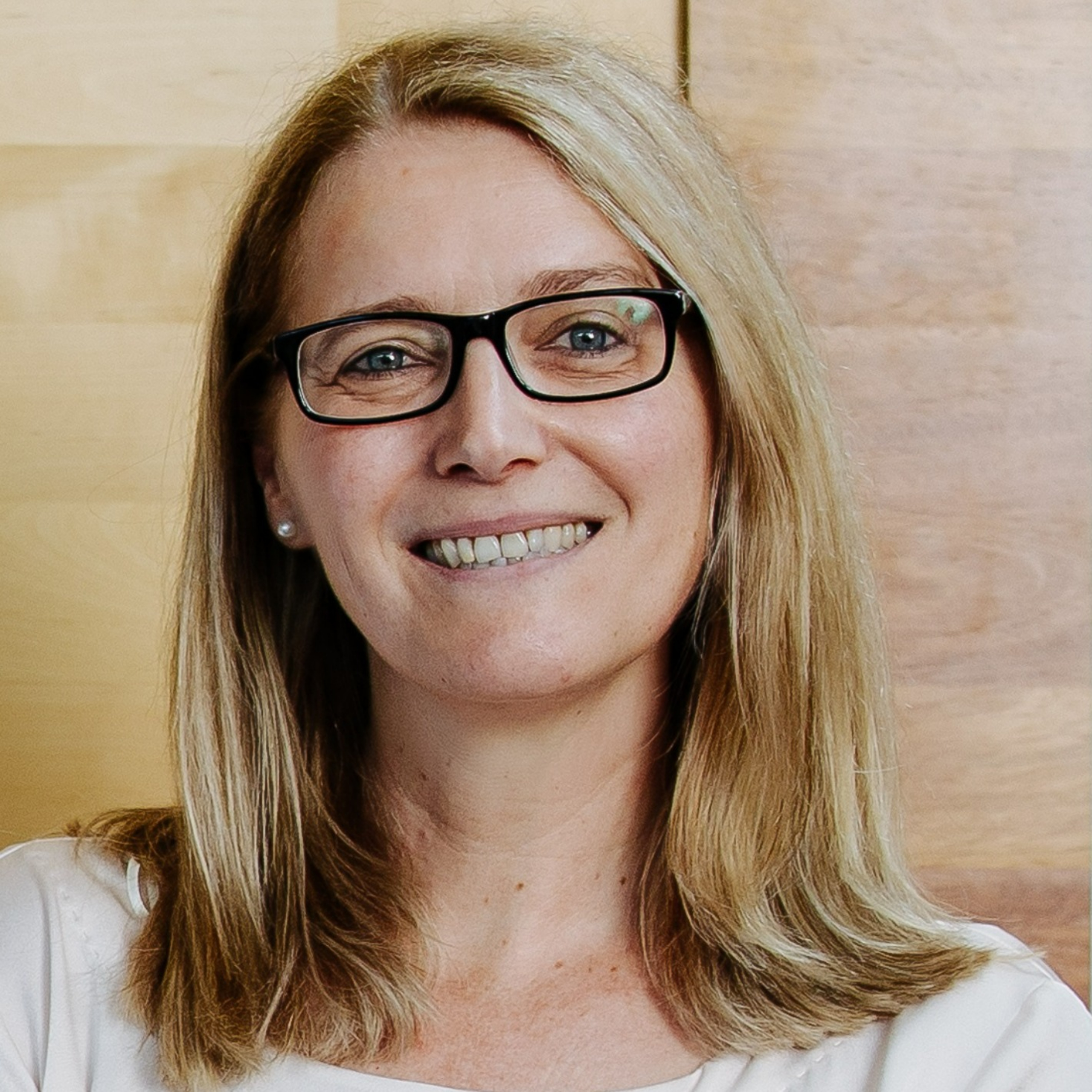
Natalie Mrachacz-Kersting, PhD
Plenary Speaker
Prof. Dr. Natalie Mrachacz-Kersting member of IEEE, received her Ph.D. degree in biomedical engineering from Aalborg University, in 2005, and currently holds the Chair for Neuroscience and Neuroscience in Sport at the Albert-Ludwigs University of Freiburg. She is the Practitioner Representative for the IEEE Engineering Medicine and Biology Society, Chair of the IEEE WI(BM)E, and on the Initiative Steering Committee of the IEEE Brain. Since 2019, she has been serving on the International BCI Society Board, where she heads the fundraising committee. She has previously held positions at Aalborg University, Denmark, FH Dortmund, and the University of Auckland, New Zealand. Natalie does research in Medical Technology, Biomedical Engineering, and Neuroscience. She has authored over 80 articles in peer-reviewed journals, over 130 conference articles/abstracts, ten book chapters, and one book. She is working on several projects within the Brain-Computer-Interfaces (BCIs) involving patient populations such as those suffering from stroke or ALS. Dr. Mrachacz-Kersting received several awards, including the international BCI award in 2017.
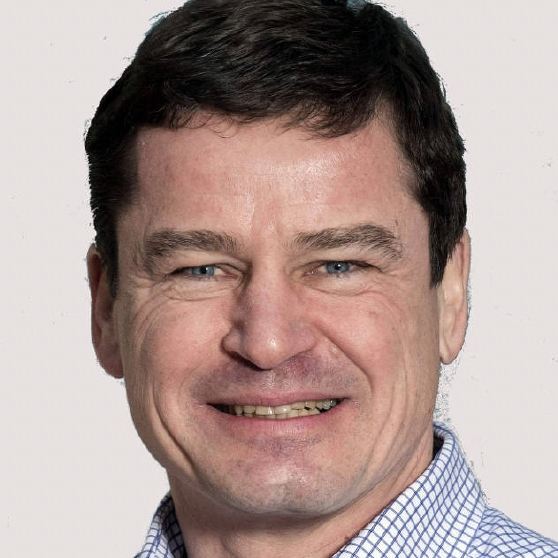
Uwe Kersting, PhD
Plenary Speaker
Uwe Kersting is heading the Neuromechanics and Musculoskeletal Biomechanics research group and is the acting Head of the Institute of Biomechanics and Orthopaedics at the German Sport University Cologne. He completed his PhD at the same institution in 1996, linking tissue adaptation to mechanical loading in training and exercise. Following a post-doctoral fellowship in Germany, he worked in New Zealand and Denmark for many years, constantly bridging the gap between basic and applied research topics while adding neuromechanical perspectives and advanced modeling approaches to his research portfolio. Prof. Kersting focuses on the motor control and mechanics of acute and chronic ankle and knee injuries. He has authored and co-authored approximately 120 peer-reviewed journal publications and book chapters in movement science, biomechanics, and measurement technology. Dr. Kersting has supervised about 100 BSc, MSc, and PhD students in different countries and educations.
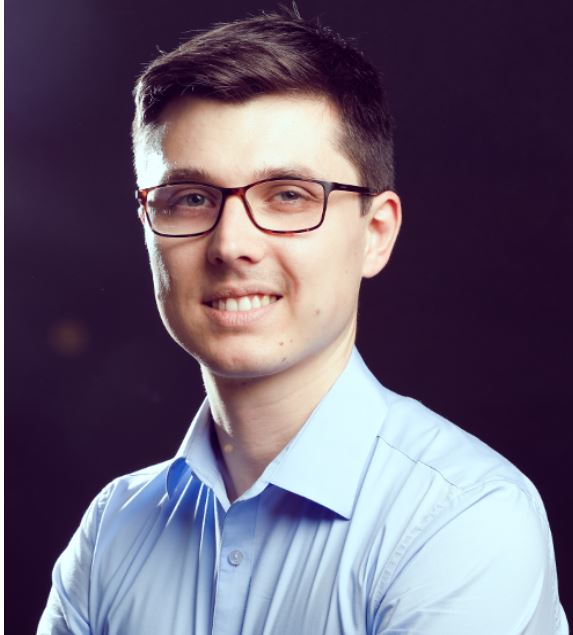
Nicolai Spicher, PhD
Plenary Speaker
Dr. Nicolai Spicher is a research group leader at the University Medical Center Göttingen, Germany, where he has directed the Biosignal Processing Lab since 2022. He received a B.Sc. & M.Sc. degree in Computer Science and Ph.D. from University Duisburg/Essen, where he was a member of the Erwin L. Hahn Institute for Magnetic Resonance Imaging. He completed postdoctoral training at the Peter L. Reichertz Institute for Medical Informatics at TU Brauschweig and Hannover Medical School. Nicolai is the recipient of various awards, including the Johann Peter Süßmilch Medal of the German Association for Medical Informatics, Biometry, and Epidemiology.
Nicolai is the Young Professional Representative of IEEE EMBS AdCom and chairs the Young Professional Committee and the joint German/Austrian/Swiss EMBS chapter.
His research interests include signal processing and machine learning for cardiovascular and multimodal applications.
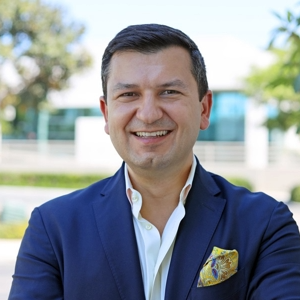
Ali Tinazli, PhD
Plenary Speaker
Dr. Ali Tinazli (CEO @ Lifespin) has a deep background in the science and business of biomedicine and healthcare and technology convergence between digital/consumer technologies and healthcare.
Tinazli received his Ph.D. in Biochemistry from J.W. Goethe University in Germany and studied business at UC Berkeley’s Haas School of Business and MIT’s Sloan School of Management. Ali has done extensive work in the molecular biology of aging and nanobiotechnology and has authored about 20 publications.
After receiving his Ph.D., Ali was in Corporate Development at Applied Biosystems (now Thermo Fisher), conducting technology scouting and in-licensing. From 2008 to 2015, Dr. Tinazli built the biomedical consumables business at Sony DADC (part of SONY Corporation). As a member of the management, he has headed as VP & Head of Business Development for the Americas business based out of Cambridge, MA. From 2015 to 2019, Ali was leading Hewlett-Packard’s global healthcare strategy in Palo Alto (CA, USA), which resulted in an HP board approval to enter health diagnostics — after he joined point-of-care diagnostics start-up Fluxergy in Irvine (CA, USA) as CCO and brought the company’s first product under CE-IVD to the European and Middle Eastern market.
Ali brings entrepreneurial solid experience and hands-on knowledge of the biosciences start-up community and serves as a Board Member and Angel Investor in numerous start-ups ranging from cybersecurity to oncology.
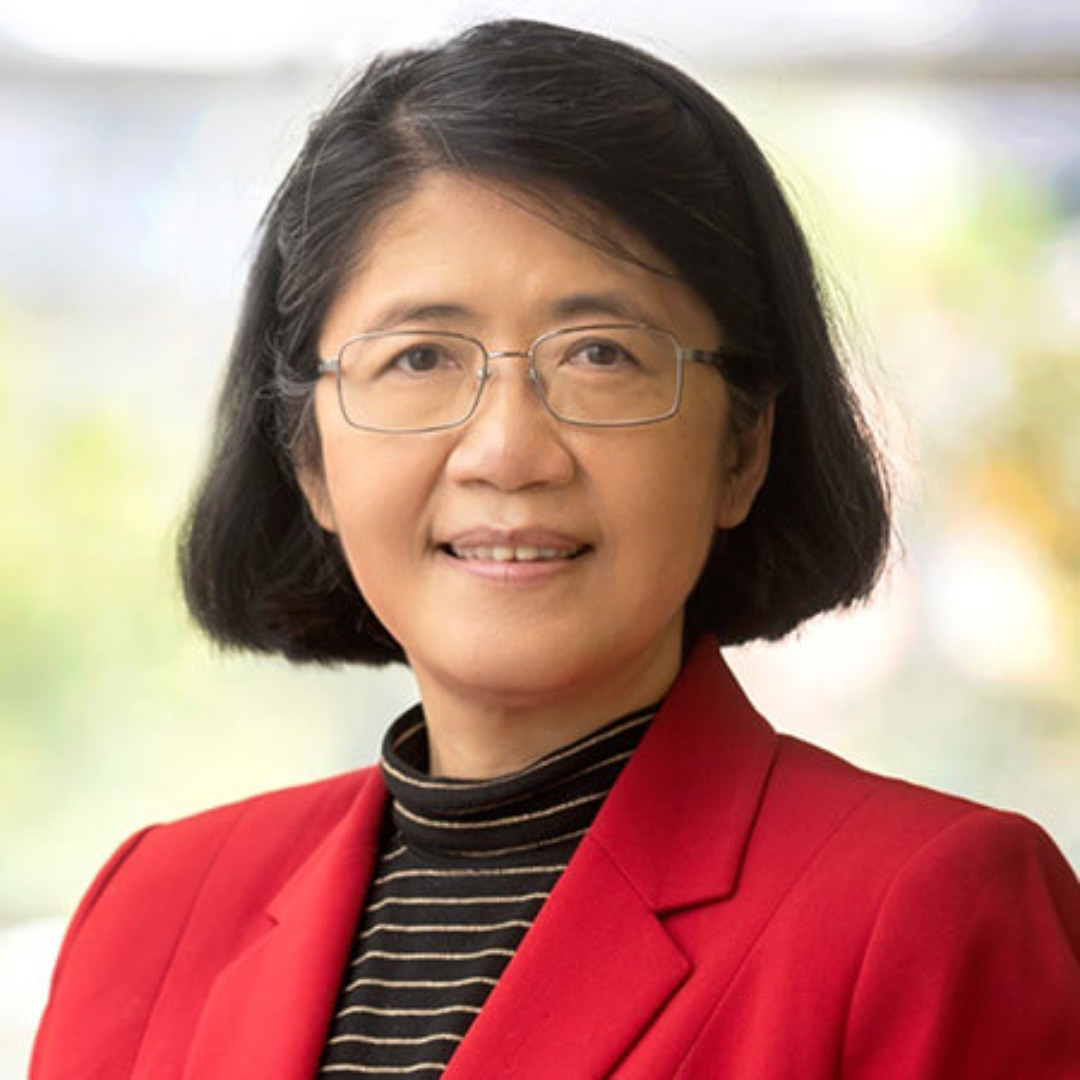
May Dongmei Wang, PhD
Plenary Speaker
Dr. May Dongmei Wang is Wallace H. Coulter Distinguished Faculty Fellow and full professor of Biomedical Engineering, Electrical and Computer Engineering, Computational Science and Engineering at Georgia Institute of Technology (GT) and Emory University (EU) in Atlanta, Georgia, USA. She received a BEng from Tsinghua University China and an MS/PhD from GT. She is Director of Biomedical Big Data Initiative, Georgia Distinguished Cancer Scholar, Petit Institute Faculty Fellow, Kavli Fellow, AIMBE Fellow, IAMBE Fellow, IEEE Fellow, and Board of Directors of American Board of AI in Medicine. Dr. Wang works in Biomedical Big Data and AI-Driven Biomedical Health Informatics and Intelligent Reality (IR) for predictive, personalized, and precision health (pHealth). She published over 300 articles in referred journals and conference proceedings with over 16,000 Google Scholar citations, and has delivered more than 320 invited and keynote lectures.
Dr. Wang is the Senior Editor for IEEE Journal of Biomedical & Health Informatics, an Associate Editor for IEEE Transactions for BME and IEEE Reviews for BME, a panelist for NIH CDMA (Clinical Data Management and Analysis) Study Section, NSF Smart and Connect Health, and Brain Canada. Dr. Wang chaired IEEE Engineering in Medicine and Biology Society (EMBS) BHI-Technical Community chair, and ACM Special Interest Group in Bioinformatics (SIGBio). She was 2014-2015 IEEE-EMBS Distinguished Lecturer, and an Emerging Area Editor for Proceedings of National Academy of Sciences. She is VP of IEEE Engineering in Medicine and Biology Society (IEEE-EMBS), a member of IEEE Future Directions Committee and The International Academy of Med. and Bio. Eng. (IAMBE) Executive Committee.
Dr. Wang is a recipient of GT Outstanding Faculty Mentor for Undergrad Research Award, and EU MilliPub Award (for a high-impact paper that is cited over 1,000 times. She is 2023 ELATES (Executive Leadership in Academic Technology, Engineering and Science) Fellow, 2022 GT President LeadingWomen, 2021 GT Provost Emerging Leaders, and 2018-2021 GT Carol Ann and David Flanagan Distinguished Faculty Fellow. She was 2015-2017 GT Biomedical Informatics Program Co-Director in Atlanta Clinical and Translational Science Institute (ACTSI), Director of Bioinformatics and Biocomputing Core in NIH/NCI-sponsored U54 CCNE, and Co-Director of GT Center of Bio-Imaging Mass Spectrometry. Her research has been supported by NIH, NSF, CDC, VA, Georgia Research Alliance, Georgia Cancer Coalition, Shriners’ Children, Children’s Health Care of Atlanta, Enduring Heart Foundation, Coulter Foundation, Imlay Foundation, Carol Ann and David Flanagan Foundation, Microsoft Research, HP, UCB, and Amazon.
Theme Keynote Speakers
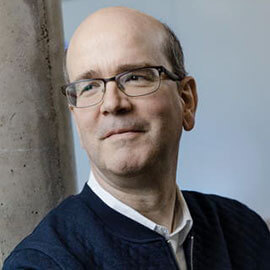
Mark van Gils
Theme Keynote | Theme 1: Biomedical Signal Processing
Mark van Gils is Professor of Digital Healthcare, leading the research group Decision Support for Health, at the Faculty of Medicine and Health Technology at Tampere University, Finland. His over 25-year long career in biomedical data analysis has included AI-driven patient monitoring research during the 1990’s at Eindhoven University of Technology, a wide scope of research and research leadership activities (including Research Professorship) in the area of digital health at VTT Technical Research Centre of Finland, and an Adjunct Professorship at Aalto University in Espoo, Finland. During his career, he has worked tightly with renowned hospitals and health tech companies, and he has obtained extensive experience in coordinating multi-disciplinary international research projects. His professional interests are in data-driven decision support for health and wellbeing, with special attention to addressing real-life challenges such as imperfect data, heterogeneity of data sources and ambiguity in targets. He has co-authored over 150 research papers. Through his work, Mark is contributing to a future where the emphasis of healthcare is moving from disease treatment to prevention. Ultimately, he finds sharing the joy of discovery with highly skilled experts to be the best part of it all.
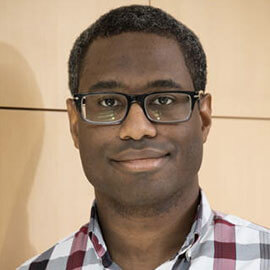
David Van Valen
Theme Keynote | Theme 2: Biomedical Imaging and Image Processing
David Van Valen PhD is faculty in the Division of Biology and Bioengineering at Caltech. His research group’s long-term interest is to develop a quantitative understanding of how living systems process, store, and transfer information, and to unravel how this information processing is perturbed in human disease states. To that end, his group leverages and pioneers the latest advances in imaging, genomics, and machine learning to produce quantitative measurements with single-cell resolution as well as predictive models of living systems. Prior to joining the faculty, he studied mathematics (BS 2003) and physics (BS 2003) at the Massachusetts Institute of Technology, applied physics (PhD 2011) at Caltech, and medicine at the David Geffen School of Medicine at UCLA (MD 2013).
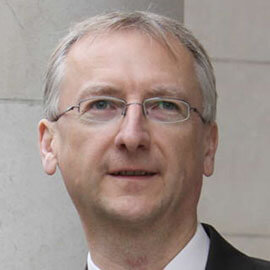
Walter Kolch
Theme Keynote | Theme 4: Computational Systems, Modeling and Simulation in Medicine, Multiscale Modeling & Synthetic Biology
Walter Kolch is Director of Systems Biology Ireland (https://www.ucd.ie/sbi/) and the Precision Oncology Ireland Consortium (https://www.precisiononcology.ie/). Trained as an MD he worked in experimental clinical research, pharmaceutical industry, and basic biological research. Before moving to Dublin in 2009 he held a Chair for Molecular Cell Biology at the University of Glasgow and was a Senior Group Leader at the Beatson Institute for Cancer Research in Glasgow, Scotland. He is best known for his work in oncogene signal transduction, proteomics, systems biology, and precision medicine. He is ranked No 3 in world in precision oncology by citations. He has made salient contributions to elucidating the function of the Raf kinases and the ERK pathway, and more recently to understanding the network wide effects of oncogenes. His current research interest focuses on understanding molecular mechanisms of malignant transformation and network mediated drug resistance in cancer, as well as multiomics data integration and Digital Twin models for cancer. He has vast experience in leading highly successful, strategic interdisciplinary research projects (total value of €62.8M) including two major (>€16M) FP7 grants. He serves on several editorial boards and advisory boards and is a Fellow of the Royal Society of Edinburgh and a Member of the Royal Irish Academy.
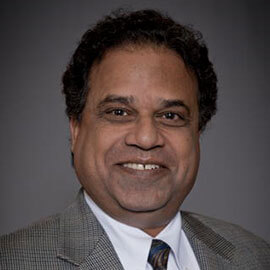
Sanjeev Shroff
Theme Keynote | Theme 5: Cardiovascular and Respiratory Systems Engineering
Dr. Sanjeev Shroff is the Distinguished Professor of and Gerald E. McGinnis Chair in Bioengineering and Professor of Medicine at the University of Pittsburgh. Prior to joining the University of Pittsburgh in April 2000, Dr. Shroff was a faculty member at the University of Chicago for 17 years in the Department of Medicine (Cardiology Section). Trained as an electrical engineer (B.Tech., Indian Institute of Technology, Kanpur, India and M.Eng., McMaster University, Canada), Dr. Shroff obtained his doctoral degree in Bioengineering from the University of Pennsylvania. Dr. Shroff’s research is in the cardiovascular arena, with the following focus areas: (1) Relationships between left ventricular mechano-energetic function and underlying cellular processes, with a special emphasis on contractile and regulatory proteins and post-translational regulation of cardiac contraction (e.g., via phosphorylation or acetylation). (2) The role of pulsatile arterial load (vascular stiffness in particular) in cardiovascular function. One of the hypotheses being investigated is that aberrant vascular stiffness changes are involved in the genesis of certain cardiovascular pathologies (e.g., preeclampsia, isolated systolic hypertension in elderly). (3) Cardiovascular actions of relaxin and its therapeutic potential in the context of three pathologies: (i) relaxin-induced maternal vascular remodeling and associated functional benefits in preeclampsia, (ii) relaxin-induced left atrial remodeling and suppression of atrial fibrillation, and (iii) relaxin-induced left ventricular remodeling and associated functional benefits in the setting of diastolic dysfunction. (4) The role of regional contraction dyssynchrony in global ventricular mechanics and energetics. (5) Development of novel, physiology-based cardiovascular monitoring technologies. In addition to basic and translational research, Dr. Shroff and colleagues have developed and continue to develop novel, simulation-based material (i.e., mathematical models of biological systems and associated “virtual experiments”) for education and engineering design. Dr. Shroff’s research efforts have been supported by numerous grants from NIH (continuous funding since 1986), AHA, NSF, and industry sources. He was the recipient of the Established Investigator Award from the AHA (1986-1991) and was elected as a Fellow of the American Physiological Society (1988), Fellow of the American Institute for Medical and Biological Engineering (1999), Fellow of Biomedical Engineering Society (2007), and Fellow of International Academy of Medical and Biological Engineering (2020). Recognized by his colleagues and peers as a consummate teacher and mentor, Dr. Shroff received the Carnegie Science Center Award for Excellence (University Educator) in 2007, the Swanson School of Engineering’s Outstanding Educator Award in 2010, and University of Pittsburgh Chancellor’s Distinguished Teaching Award in 2011. He has mentored thirty-six trainees so far (15 post-doctoral and 21 pre-doctoral), most of whom are pursuing independent research careers in academia or industry. Dr. Shroff has been serving as the Principal Investigator on a NIH-NHLBI pre-doctoral training grant (Cardiovascular Bioengineering Training Program) since 2005 and the Coulter Translational Research Partnership II Program since 2013, and Co-Director on a NIH-NHLBI post-doctoral training grant (Training Program in Imaging Sciences in Translational Cardiovascular Research) since 2016.
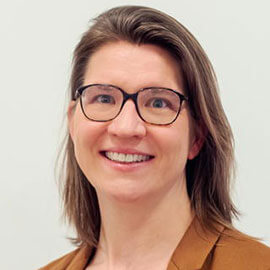
Marjolein van der Krogt
Theme Keynote | Theme 6: Neural and Rehabilitation Engineering
Marjolein van der Krogt is director of the Clinical Movement Analysis lab at the Amsterdam University Medical Centers in The Netherlands. She obtained a cum laude MSc degree in Human Movement Sciences and a PhD in Rehabilitation Medicine, focusing on musculoskeletal simulation of gait problems in children with cerebral palsy. During her postdoc period, she was a visiting scholar at Stanford University neuromuscular biomechanics lab. In her combined function as head of the clinical gait lab and senior researcher, she strives towards integrating research and clinical care. This translational research approach helps to perform truly patient-oriented research projects and improve health care directly by research outcomes. Her research line focuses on a better understanding of movement deviations and their underlying neural and musculoskeletal impairments in children and adults with neurological disorders. To this end, she developed and applied novel technologies including the use of patient-specific musculoskeletal modeling and computer simulations to obtain in-depth understanding of muscle function during gait. In close collaboration with industry, she was involved in the development of an interactive gait lab, which allows for real-time gait analysis, performed on a treadmill placed within a virtual reality environment. Exploiting these new opportunities, she performed several studies on the use of real-time feedback to improve walking performance in children with neurological disorders, and the use of mechanical perturbations to assess the role of spasticity during gait.
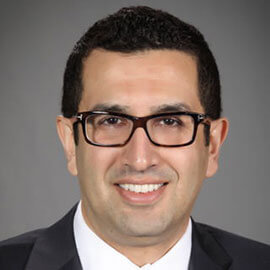
Roozbeh Jafari
Theme Keynote | Theme 7: Biomedical Sensors and Wearable Systems
Roozbeh Jafari (https://jafari.tamu.edu/) is the Tim and Amy Leach Professor of Biomedical Engineering, Computer Science and Engineering and Electrical and Computer Engineering at Texas A&M University. He received his Ph.D. in Computer Science from UCLA and completed a postdoctoral fellowship at UC-Berkeley. His research interest lies in the area of wearable computer design and signal processing. He has raised more than $86M for research with $23M directed towards his lab. His research has been funded by the NSF, NIH, DoD (TATRC), DTRA, DIU, AFRL, AFOSR, DARPA, SRC and industry (Texas Instruments, Tektronix, Samsung & Telecom Italia). He has published over 200 papers in refereed journals and conferences. He has served as the general chair and technical program committee chair for several flagship conferences in the areas of wearable computers. Dr. Jafari is the recipient of the NSF CAREER award (2012), IEEE Real-Time & Embedded Technology & Applications Symposium best paper award (2011), Andrew P. Sage best transactions paper award (2014), ACM Transactions on Embedded Computing Systems best paper award (2019), and the outstanding engineering contribution award from the College of Engineering at Texas A&M (2019). He has been named Texas A&M Presidential Fellow (2019). He serves on the editorial board for the IEEE Transactions on Biomedical Circuits and Systems, IEEE Sensors Journal, IEEE Internet of Things Journal, IEEE Journal of Biomedical and Health Informatics, IEEE Open Journal of Engineering in Medicine and Biology and ACM Transactions on Computing for Healthcare. He is currently the chair of the IEEE Wearable Biomedical Sensors and Systems Technical Committee (elected) as well the IEEE Applied Signal Processing Technical Committee (elected). He serves on scientific panels for funding agencies frequently, served as a standing member of the NIH Biomedical Computing and Health Informatics (BCHI) study section (2017-2021), and is the inaugural chair of the NIH Clinical Informatics and Digital Health (CIDH) study section (2020-2022). He is a Fellow of the American Institute for Medical and Biological Engineering (AIMBE).
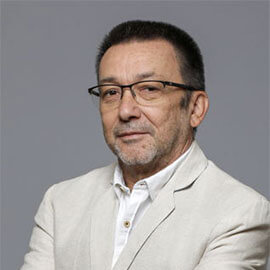
Ratko Magjarević
Theme Keynote | Theme 8: Biorobotics and Biomechanics
Ratko Magjarević graduated Electrical Engineering in 1982 and in 1988 he received his Master Degree. In 1994. he received his Ph.D. in the field of Electrical Engineering from the University of Zagreb. He spent his Academic career at the University of Zagreb, where he was elected to the position of full professor with tenure in the field of Electrical Engineering in 2011. His research interest is in biomedical engineering and health informatics, in particular, instrumentation for data acquisition, transmission and processing in health care and in developing technologies for personalization, prevention, monitoring and risk prediction in medicine and health care. Apart from Zagreb, he has been teaching at the universities of Trieste, Ljubljana and Bogota, Colombia for many years. During the academic year 2005-06, he resides at the Institute for Biomedical Engineering, University of Stuttgart, Germany. Already in 2002-04 he was one of the experts on the European Commission project “Chartography of Medical and Biological Engineering in Europe” and later on the European projects FP6, FP7, Horizon 2020, TEMPUS and COST projects. He has been the leader of bilateral scientific projects with partners in Slovenia, Italy, the United Kingdom, Macedonia, Hungary, France and Colombia. He has led an R&D project under IRI scheme and a number of other research and professional projects. He has published more than 80 papers in journals and conference proceedings, several editorial books, several book chapters and encyclopedia citations, and has delivered more than twenty invited lectures at major international conferences. Professor Magjarević is an official and a member of several international and national scientific and professional organizations. In the International Federation of Medical and Biological Engineering (IFMBE), he was twice elected for a three-year term of office as the President: 2012-15 and 2022 – 25. In 2014, he received the FER Golden Plaque “Josip Loncar” for his contribution to the teaching and development of biomedical engineering, as well as the recognition of the Senate of the Republic of Colombia for his global contribution to the development of biomedical engineering. In 2013, he was elected Honorary Senator of the University of Ljubljana. In 2020, he was proclaimed IUPESM Inaugural Fellow.
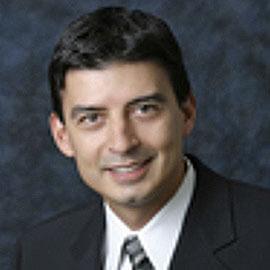
Theodore Papagiannis
Theme Keynote | Theme 9: Therapeutic & Diagnostic Systems and Technologies
Theodore Papagiannis is a partner at Knobbe Martens, an intellectual property (IP) boutique firm with offices in California, Washington DC, New York and Seattle. He advises companies on developing comprehensive intellectual property portfolios and strategies. Theodore has extensive experience in representing start-ups and other early stage medical device companies. He also conducts strategic IP evaluations on behalf of investors and other entities in connection with an investment round, acquisition or other ventures.
Theodore has extensive experience in strategically growing IP portfolios in the healthtech arena, including in the fields of spine and other orthopedics, injection systems, cardiac and cardiovascular technologies (e.g., for the treatment of atrial fibrillation and other arrhythmias, hypertension, etc.), denervation and neuromodulation, hypertension, tissue ablation, catheters, sheaths and other intravascular technologies and skin treatment. He also has experience with negotiating licenses and other agreements to enhance IP portfolios on behalf of clients.
Theodore has served as a member of the board of directors of Sustain SoCal, an organization that accelerates sustainability in Southern California through innovation, collaboration and education. He has unique technical and IP experience in clean technologies, including water and wastewater treatment, recycling and waste management, lighting, clean energy and the like, and is Chair of the firm’s Cleantech Practice Group.
Theodore has presented IP-related workshops and symposia at several recent EMBC meetings. Prior to beginning his legal career, Theodore worked as an engineer for nearly a decade. He is a licensed Professional Engineer in the State of California.
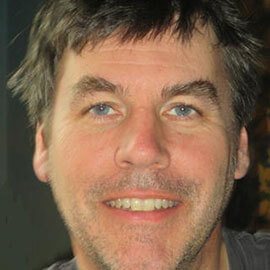
John Chelsom
Theme Keynote | Theme 10: Biomedical & Health Informatics
John Chelsom is Director of the Applied Health Informatics program at Fordham University, having worked for over 30 years in the field of Health Informatics. He qualified with a degree in Engineering Science from the University of Oxford and a PhD from City University of London, where he studied the application of artificial intelligence in medicine. He has been a Visiting Professor in Health Informatics at City University and is an Adjunct Assistant Professor at the University of Victoria, Canada. He is a consultant for the World Bank where he is an invited expert on Telemedicine, publishing a handbook for Rural Telemedicine in Ukraine. In the 1990’s he was heavily involved in the application of open standards for structured information in the publishing, automotive and healthcare sectors. He started a company which developed the first web-based Electronic Health Records (EHR) product deployed in the England’s National Health Service (NHS). This product went on to form the basis for the original Summary Care Record in England’s National Health Service, starting in 2004. As well as EHR systems, John was also responsible for developing the first online delivery of the BMJ’s Clinical Evidence product, the first XML editing system for the British National Formulary and was a proposer of the Open Document Format for Office Applications. In 2010, he started the Open Health Informatics research programme at City University of London. This research led to the development of the open source cityEHR – an ontology-based health records system, based on open standards, interfaces and development practices. cityEHR is now deployed as an operational EHR in several hospitals in England and is used for teaching students in health informatics.

